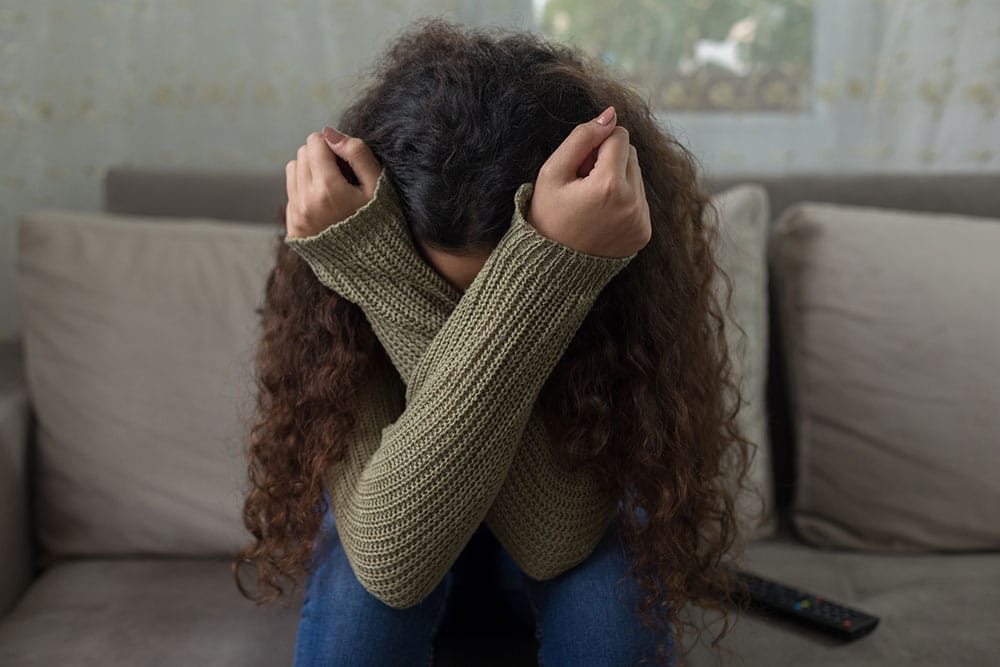Anxiety
Anxiety disorders cause individuals to experience excessive worry and fear
Anxiety: What You Need to Know
Anxiety disorders share the common symptoms of excited, intense, and enduring fear, or concern in circumstances where a person typically wouldn’t feel scared or worried. Individuals suffering from an anxiety disorder often experience intense sustained distress and nervousness, and the condition can range from mild to severe.
While everyone experiences anxiety at some point, nearly one in five people (18% of the US) will develop an anxiety disorder, possibly needing treatment. Pervasive untreated anxiety can easily become debilitating. Types of anxiety disorders include generalized anxiety disorder (GAD), panic disorder, social anxiety disorder, phobias, and obsessive-compulsive disorder (OCD).

Effects of Anxiety
Several factors may influence the development of an anxiety disorder. According to the Mayo Clinic, the following are some of the more common risk factors for developing an anxiety disorder:
An individual may also be predisposed to anxiety based on his or her personality traits. In fact, anxiety disorders can be brought on by a number of factors, but it’s important to know that these disorders can be managed with therapeutic intervention.
Processing trauma, reducing stress, and decreasing substance use can be significant in reducing anxiety. An individual may seek out substances to self-medicate symptoms of anxiety, leading to the development of a co-occurring disorder. Anxiety and addiction should be treated in the same setting for the best chance of long-term recovery from both conditions.
Featured Articles
The Price We Pay for the Pressure to Succeed
With higher exposure to the “success” of others and fewer coping skills than generations reared through hardship, America’s teen population is increasingly falling victim to bouts of anxiety and depression that are not just chronic, but debilitating.
Learn MoreNavigating a Quarter-Life Crisis
Similar to a mid-life crisis, a quarter-life crisis involves many of the same emotions, anxiety, pressure, and societal expectations of the midlife crisis; it just occurs during a more developmental stage of life.
Learn MoreTaking Treatment Into the Great Outdoors
Why is being in the great outdoors so helpful to our mental well-being? The benefits of spending time in nature have long been understood, and their value in therapy is beginning to be accepted and documented by psychological research.
Learn MoreAdmissions
Our experienced, compassionate Admissions team is here to help 24 hours a day and will treat you with the dignity and respect you deserve. Let our specialists help you create a road map to get you where you want to go: a healthier, more balanced, fulfilling place in life. When you call, you’ll be led through a series of questions to determine if the Claudia Black Young Adult Center is the right fit for your needs, and how soon your treatment can begin.
If you are interested in treatment for yourself or a loved one, call or fill out our convenient Admissions form!
CONTACT OUR ADMISSIONS OFFICE
 866-957-4961
866-957-4961
OR COMPLETE AN ADMISSIONS CONTACT FORM
Click below to start the admissions process today

